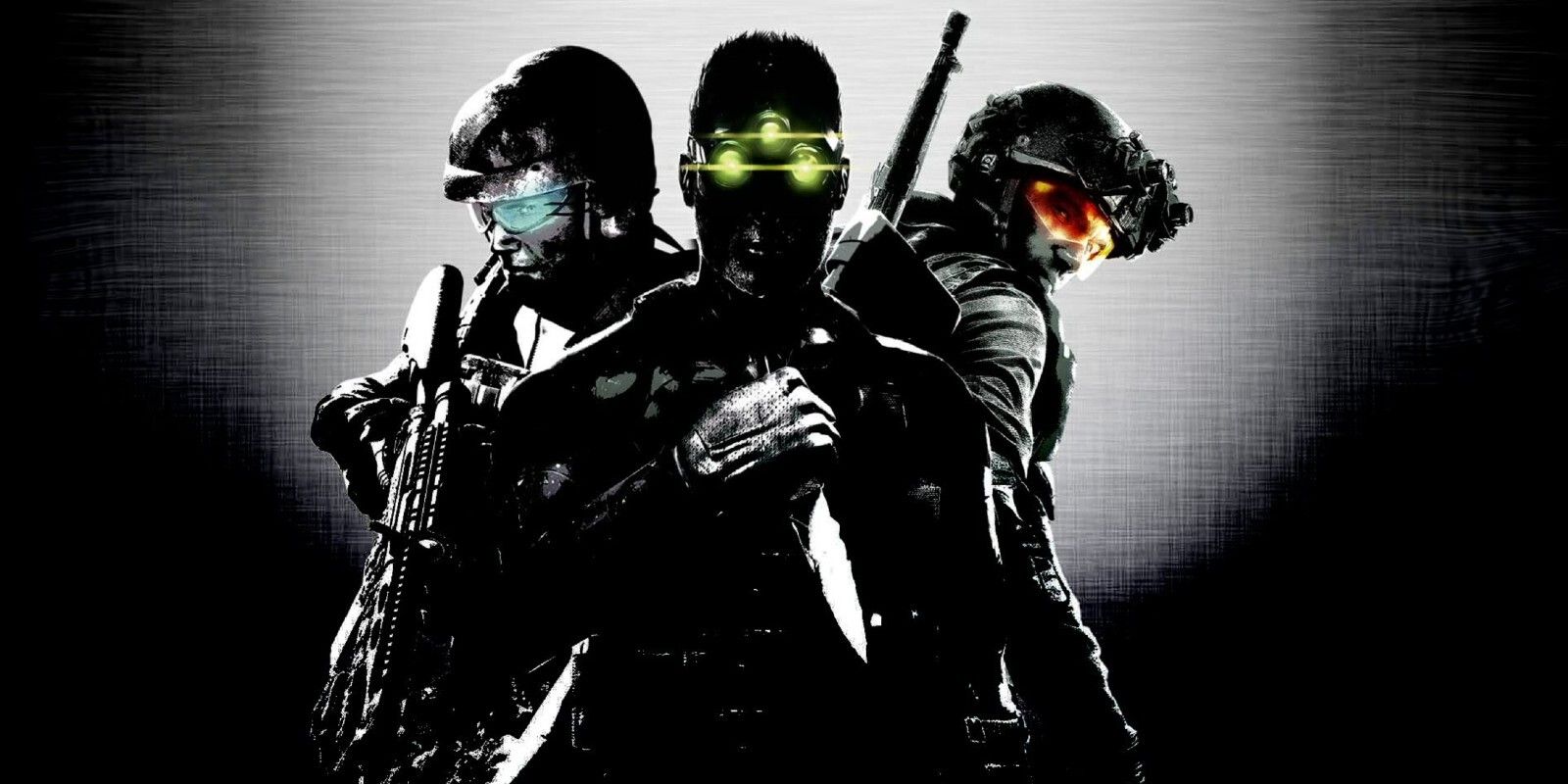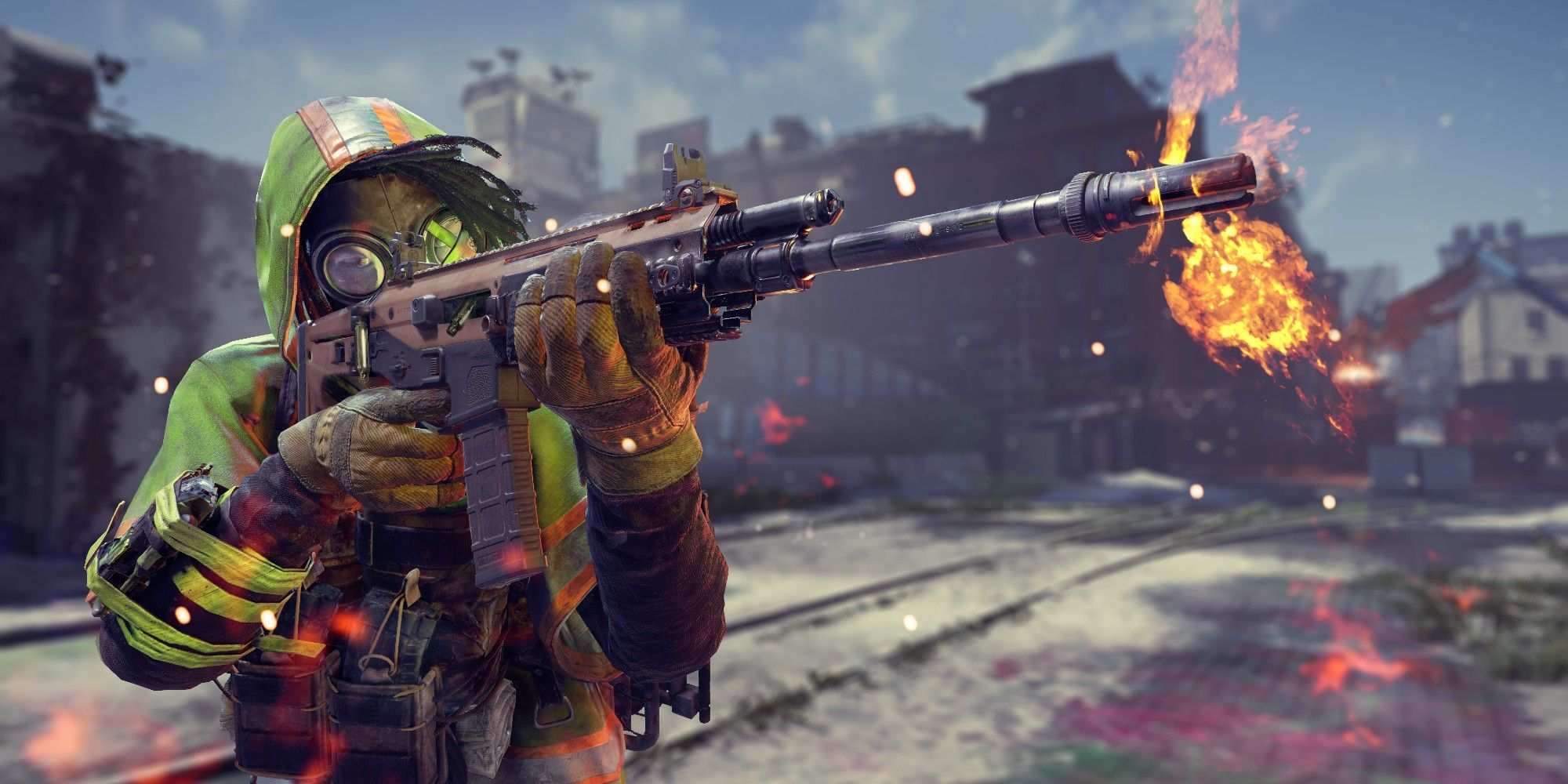Ubisoft's Tom Clancy's video games are in danger of losing their franchise identity, with the announcement of the Ghost Recon Frontline battle royale taking the series further away from its roots. Over the last decade, the Tom Clancy series has steadily divested from the tactical focus that made franchise pillars like Rainbow Six and Ghost Recon hits to begin with, pivoting them to different genres and accommodating shifting trends in the industry.
While its emphasis used to be on realistic, cooperative gameplay, Rainbow Six now primarily exists as a PvP multiplayer shooter, and its next entry, Rainbow Six Extraction, is set around Team Rainbow's operators fighting symbiote-like aliens. Ghost Recon, meanwhile, has leaned further into the open-world and looter-shooter genres - no doubt spurred on by the success of Tom Clancy's The Division, which also lacked many of the hallmarks of the Tom Clancy franchise's formative entries. Ghost Recon Frontline sees the series take yet another step away from its former core audience as Ubisoft finally chases the battle royale craze dominated by Fortnite, Call of Duty: Warzone, and Apex Legends.
With the release of the original Tom Clancy's Rainbow Six in 1998, Ubisoft was able to carve out a niche in the saturated shooter market. The game had a more tactical focus than many of the other first and third-person shooters of the time and embodied the ethos of Clancy's novels, focusing on high stakes, post-Cold War fiction and putting players in control of elite counter-terrorist operatives. Rainbow Six was followed shortly after by Ghost Recon and Splinter Cell, the former spotlighting traditional military special forces and the latter covert espionage.
The Tom Clancy Games Have Lost The Franchise's Identity
From 1998 to 2008, all of Ubisoft's Tom Clancy games fit squarely into that tactical, semi-grounded bracket. PvP elements were slowly introduced, but the main focus was still on compelling single-player storylines and co-op experiences, ensuring the series distinguished itself from the likes of Call of Duty and Battlefield. However, following 2010, each subsequent Rainbow Six and Ghost Recon lost tactical elements, presumably in a bid to find mainstream appeal.
Rainbow Six Siege may provide a unique, tactics-based twist on multiplayer shooters, but it's a far cry from what the series once was. Terrorist Hunt has been demoted from a key feature to a minor distraction, and there's no single-player to speak of. Ghost Recon has also all but abandoned its core premise. 2012's Ghost Recon: Future Soldier provided a generic, linear military campaign along the lines of Call of Duty, and subsequent entries Ghost Recon Wildlands and Ghost Recon Breakpoint marked the series' first bow into the open-world and looter-shooter genres. Even Splinter Cell, arguably the flagship series of the Tom Clancy franchise, ceded many of its stealth elements in Splinter Cell: Conviction and Splinter Cell: Blacklist before ultimately laying dormant, with series protagonist Sam Fisher relegated to cameo appearances in Siege, Wildlands and Breakpoint.
It's been a steady process, but the most recent Tom Clancy announcements from Ubisoft have seemingly diluted the franchise beyond all recognition. Although it's true many studios have been able to place their own unique twists on the battle royale genre, Ghost Recon Frontline is another example of Ubisoft shifting the series in the direction of a popular trend. New additions to the Tom Clancy brand are just as guilty of this; The Division's looter-shooter gameplay is only a distant echo of the original Rainbow Six and Ghost Recon, and arena shooter Tom Clancy's XDefiant seemingly exists just so Ubisoft can get in on yet another trend.
It all begs the question: What does it mean for a game to bear the "Tom Clancy's" logo? In the past, the name denoted a different kind of shooter experience, but with Splinter Cell missing and no grounded, tactical PvE elements in Ghost Recon Frontline and the series' other recent entries, it's mostly become another generic brand in a medium already full of forgettable military shooters.


